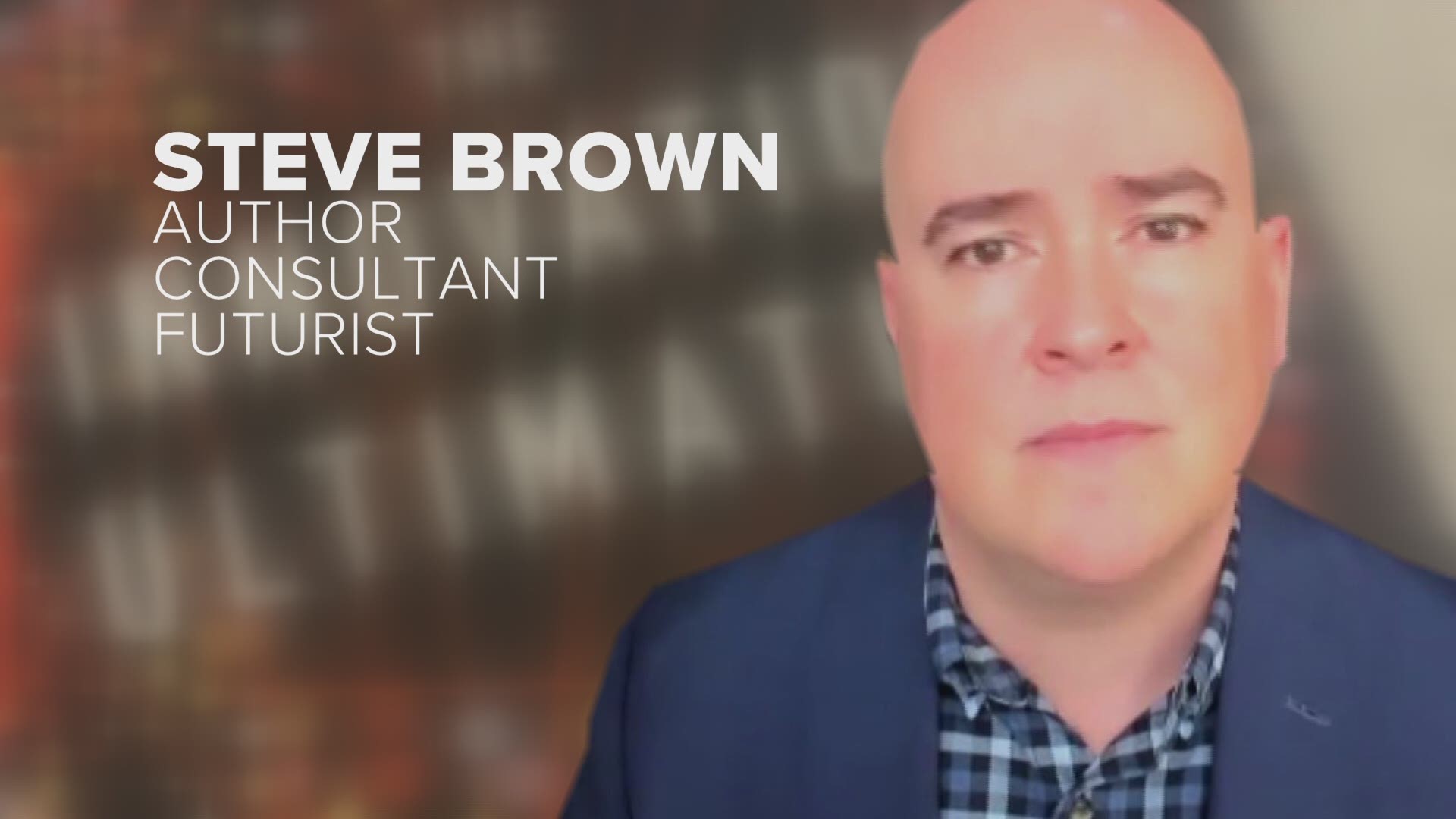For those working from home, or who've been laid off and your industry has collapsed due to the coronavirus pandemic, what will the near-future look like for you, once things open up? We start our new series on KGW Sunrise called What's Next? with a look at the how the new office landscape will evolve.
Steve Brown is a Portland-based corporate consultant, innovation futurist with 31 years at Intel, and an author whose book "The Innovation Ultimatum" came out in 2020. We asked Brown to share some predictions for the future of work.
Fergus Nolan is a Portland-based business executive with 18 years as a senior director at Nike. He's now the Columbia Sportswear Director for Brands and Regions, Global Information Systems. We asked him for reaction to Brown's predictions and talk about what he's noticing in the business world.
Logistics
Steve Brown: Most people will spend 3-4 days a week at home and then go into the office when they need to collaborate with other people and strengthen relationships with people they work with. It doesn't mean offices go away. Now maybe we'll reconfigure those offices so that more of the space is given over to collaboration space so people can come together and brainstorm and work on projects. That moment when you run into somebody in the corridor, at the watercooler, in the cafeteria and you go, 'Oh yes! I meant to talk to you about that thing!' or 'Have you gotten that email from me yet?' All of those little moments of serendipity that is almost the lubrication that helps things move forward. We miss out on those with tools like Zoom and Teams.
Fergus Nolan: Prior to COVID, I was a firm believer that to get the most out of individuals, they needed to be in the office, they needed to work collaboratively, needed to be able to access other individuals quickly. My attitude and perspective has completely changed now though. I have just seen people doing amazing things in this new environment. But I don't think it's sustainable (working from home 100% of the time) long term without more of a hybrid approach. A college graduate, or a high school graduate coming into the workforce, I think they're at a disadvantage personally, if they don't have that actual workplace environment to help ground themselves in the culture of the company they're coming into.
Hiring and salary
Steve Brown: Now I can look at people across the country or perhaps across the planet to fulfill the role and find the perfect candidate. They don't have to crush themselves into cities. They can move to places with higher quality of life. You can start taking people working for example at Facebook in the Bay Area, who can now work across America and they're earning Facebook dollars and spending those dollars in local communities. Hopefully you'll see more money spent in rural communities and start to lift those communities up. You will see that salaries may drop as that cost of living adjustment is removed, but companies will still pay for the best talent they can get their hands on.
Fergus Nolan: There are significant challenges, especially from a taxation point of view for employers. So as much as it may seem attractive to do it, it's not always that easy. Having your workforce dispersed like potentially could come from this, is a challenge. Now saying that, the companies that can adapt and work with this new environment will have the ability to hire the best talent in the world. If you're earning a certain salary in New York or Los Angeles or San Francisco that is equivalent to that marketplace, I think it would be naive of people to think they can take that salary and move to Nebraska because most companies are going to say that is way more salary than you need for the community you're going into.
Management Style
A hybrid of some days at home, some days in the office will require a different management style.
Steve Brown: Hopefully most of the management by 'butts-in-seats' has already gone away. It's still alive in some places with some managers. But really what this means is, we have to move entirely to management-by-results. It doesn't matter whether you're at the office or at home, or how many hours you work, it comes down to what do you contribute to your organization? And that contribution is in terms of key deliverables and to team spirit, to the culture of your organization and so on.
Fergus Nolan: Managers need to create rewards relevant to the work their employees are doing. I think people respect that and do work way beyond the level they've done before.

